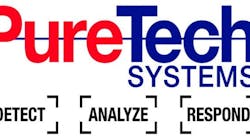If it has been a few years since your last employee handbook (if you don’t have one, we need to talk), now might be the time to dust it off and give it a good update. On the federal, state and even local levels, there have been many new laws enacted and critical court decisions that need to be reflected in your handbook.
Here are five important updates to consider:
1. Protected Speech and Social Media: Mobile devices are increasingly becoming a mainstream workplace tool and the use of social media permeates both our personal and professional lives. While the positive aspects of these tools are obvious, there are serious concerns — companies want their employees to share positive, relevant information about the business, but not negative or confidential information. Few handbooks older than three or four years have sufficient language to address this concern.
Your employee handbook should discuss appropriate online conduct. It is fine to contain language prohibiting employees from revealing confidential business information, such as data on vendors and customers, but the text should avoid any language that could be interpreted as infringing on speech and actions that the National Labor Relations Act (NLRA) protects, such as discussions on terms and conditions of employment such as wages, hours, collective bargaining and working conditions.
2. LGBT Rights: In 2015, the U.S. Supreme Court decided that states must recognize same-sex marriages and companies must provide same-sex married couples the same health and retirement benefits that they offer to other wedded people. More than 20 states have gone on to expand their anti-discrimination protections to include transgender individuals, while the Equal Employment Opportunity Commission (EEOC) has established that gender identity is included within protections covered by Title VII of the Civil Rights Act of 1964. To demonstrate their compliance to this evolving area, employers need to revisit their benefit policies to reflect the new definition of "spouse," and they should consider altering their non-discrimination and non-harassment policies to include marital status, sexual orientation and sexual identity.
3. Retaliation: The most common charge brought by the EEOC is retaliation against an employee for making a complaint or because they filed a charge of discrimination against their employer. It is critical to remember that how you handle a complaint can create as much of a liability for your company as the complaint itself. Employers are wise to make sure that their handbook states that the process for evaluating a claim of harassment, discrimination (or any other claim) will be fair for both the person making the claim and for the individual who is being accused, and that the company prohibits acts of retaliation against employees for making a charge or claim.
4. Smoking and Marijuana: Given the increasing use of e-cigarettes (vapes) and other smokeless devices, employee handbooks should mention e-cigarettes specifically in their smoking policy and should clearly state that they and other tobacco and nicotine products are covered under the smoking policy. Their handbook should also regulate them like any other tobacco-related product, including where and when they can be used. Many states have eased restrictions on the recreational and/or medical use of marijuana. While those state policies vary widely, it is generally safe to state in your handbook that marijuana used for recreational and medical purposes will be treated like other drugs and substances with regard to their use at the workplace, and that use of marijuana at work and/or being under the influence of it at work is prohibited.
5. State Updates: Increasingly, states and municipalities have been leading the way in passing significant labor law reforms. These include mandating paid and unpaid sick leave, minimum wages, pregnant and new mother accommodations, equal pay standards, “ban the box” legislation, LGBT non-discrimination, drug testing, and many other changes to laws and workplace regulations. Remember, you are responsible for staying abreast of changes to laws and regulations within each state and municipality where your employees are located, and your employee handbooks should be updated or amended each year to make sure they are fully compliant with all relevant laws and regulations.
Overtime Changes On the Horizon
Changes to the Fair Labor Standards Act’s overtime rules, announced by the Obama administration in 2015, are likely to be implemented in mid-2016. This change will require that the minimum salary threshold to be exempt from the overtime provision of the FLSA will increase from $455 to an estimated $970 per week.
Because of the delay in the initial implementation date, once the new effective date is established, it is expected that employers will be given short notice to make the necessary changes — by either re-classifying employees as non-exempt or increasing their salaries accordingly. Our best advice is to start working now on a strategy to handle this significant change.
As always, if you need any assistance with your handbooks or any other HR issue, please don’t hesitate to give us a call!
Claudia St. John is President of Affinity HR Group and a Strategic Partner of the HRGroup, a provider of Human Resource support services, including hiring practices, compensation programs, talent development and more. For additional info, or to suggest a topic for a future article, email [email protected].


